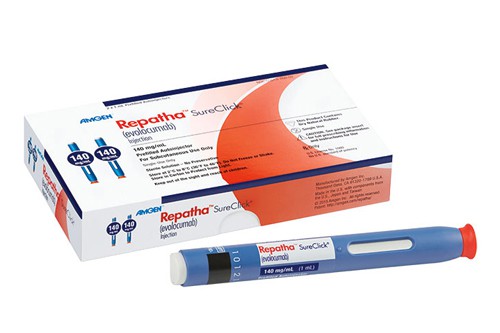
The price of new cholesterol-lowering drugs from Amgen and Sanofi/Regeneron would have to be slashed 85% to make them cost-effective, according to a new report.
The verdict of the Institute for Clinical and Economic Review (ICER) is that Amgen’s Repatha (evolocumab) and Sanofi/Regeneron’s Praluent (alirocumab) would have to cost $2,177 per year to justify their use.
The two drugs – which are in the new PCSK9 inhibitor class and can be used in patients who cannot tolerate or don’t respond sufficiently to low-cost statins – have both been introduced with a list price above $14,000.
The report concluded there was “moderate certainty that PCSK9 treatment provides a substantial or incremental net health benefit” and also concluded they were well-tolerated and could achieve “substantial reductions in non-fatal myocardial infarctions, non-fatal strokes, and cardiovascular deaths over 20 years.”
However, ICER has concluded that treatment with PCSK9 inhibitors at the current price generates cost-effectiveness ratios that exceed the threshold of $100,000 per quality-adjusted life year (QALY), a measure typically used by health technology assessment agencies including the UK’s NICE.
The new drugs’ broad target population and hefty premium over statins has focused attention on the thorny issue of the affordability of new medicines in the US, and the ICER report will fuel that debate. Even if just 25% of eligible patients took the PCSK9 inhibitor, around $100bn would be added to US healthcare costs over five years at current prices, it claims.
Amgen and Sanofi have both said they would review the ICER document but stood by their pricing policy. In a statement, Amgen said it disagreed with the methodology used in the cost-effectiveness assessment, in particular that it “does not place value on addressing a significant unmet medical need.”
ICER’s recommended price level would put Repatha and Praluent roughly in line with the price of Merck & Co’s rival cholesterol drug Zetia (ezetimibe), which has been shown to be less effective in reducing low-density lipoprotein-cholesterol (LDL-c) in trials.
Unlike NICE, ICER is no executive power, although its reports will likely be used by health insurers and pharmacy benefit managers (PBMs) in the US to negotiate discounts, with Express Scripts already indicating it would do so.
The non-profit organisation set up its cost-effectiveness programme in July with funding of $5m from the philanthropic Laura and John Arnold Foundation, based in Houston.
The review of the PCSK9 inhibitors is just the first of a series of scheduled reports, with Novartis’ new health failure drug Entresto (sacubitril/valsartan) the next drug to be thrown into the spotlight.




